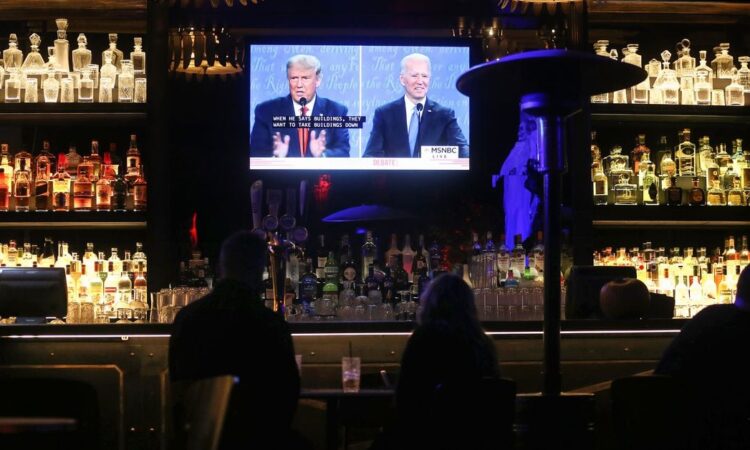
The U.S. is holding its presidential election this fall. More than half a dozen other countries and bodies are likewise holding – or have held – elections this year. Some candidates and lawmakers have already addressed crypto, whether appealing to the industry or just commenting on the technology. The extent to which there is such a thing as a “crypto voter” remains unclear, but it is undeniable that there is a wave of attention directed at this industry.
You’re reading State of Crypto, a CoinDesk newsletter looking at the intersection of cryptocurrency and government. Click here to sign up for future editions.
There are more than half a dozen elections this year, from the U.S.’s presidential election this fall to the European Union’s election next month to South Korea’s election last month and more. While crypto isn’t shaping up to be a major election issue in most of these, we’ve still heard candidates – including former U.S. President and presumptive Republican nominee Donald Trump – directly address members of the crypto community.
Crypto has not really been an issue in past elections. Sure, there have been candidates who had previously addressed crypto or were adjacent to the industry, but there wasn’t really a concerted effort to try and solicit people who believe crypto is a major, or the major, factor for their vote. To some extent, that seems to be changing, though it’s still hard to quantify the extent to which the crypto contingent will be a major voting bloc.
This year, CoinDesk is looking to cover the elections as comprehensively as possible, with a focus on crypto and related issues. The first wave of stories we published focused on the extent to which crypto might be an issue in some of these elections, and the extent to which industry participants in different countries expect the election results to affect crypto policy.
Indonesia’s incoming vice president, for example, said he wanted to improve technology education – including crypto and blockchain education – during his campaign.
And in the U.S., a massive wave of attention hit last week, after former U.S. President Donald Trump (who’s the clear favorite to win the Republican Party’s nomination this year) told a group of his NFT holders that he’s “for that” in reference to crypto. This comes barely three months after he said “you probably have to do some regulation” around crypto, and years after he famously said he was “not a fan of bitcoin and other cryptocurrencies.”
As Danny Nelson reported, it’s unclear whether Trump understands the issues around crypto, but he’s reaching out to the crypto community nonetheless. His comments sparked a large amount of discussion online about whether he is the bulwark against what’s seen within crypto circles as an administrative state’s overreach or what role crypto voters might play in the election. Current President Joe Biden’s administration has not been the friendliest to crypto, with an array of actions from the Securities and Exchange Commission and Department of Justice taking on crypto’s largest exchanges and other companies and services. What will happen as the presidential campaigns shift to the general election in the coming weeks is unclear.
These are questions that warrant further investigation through the coming months. For now, I leave you with CoinDesk’s first wave of stories covering the potential effect elections might have in various nations.
We’re also looking at polling information, prediction markets, political action committee activities and more. If you have thoughts on the role of crypto in these elections, or the effect these elections might have on crypto, please reach out. We want to hear from you. This goes for the presidential, Senate and House races in the U.S. and their equivalents everywhere else.
You can continue following all of our coverage of elections worldwide at this link.
If you’ve got thoughts or questions on what I should discuss next week or any other feedback you’d like to share, feel free to email me at nik@coindesk.com or find me on Twitter @nikhileshde.
You can also join the group conversation on Telegram.






